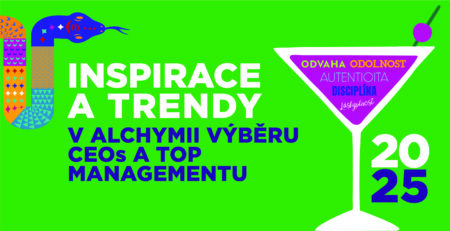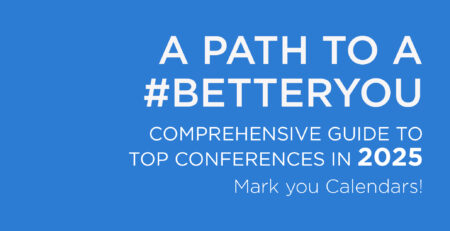The way of thinking defines whether we will be successful
The economic changes caused by the pandemic require new approaches to human resources and leadership. Lucie Teisler, a Managing Partner of the consulting company Anderson Willinger, shared her experience and ideas on how to use human potential effectively, including her own, in this turbulent time.
Article in Czech available in magazine MM Průmyslové Spektrum

MM: According to some economists, the announced cooling of the economy at the end of 2018, exacerbated by a pandemic, has resulted in an unprecedented global economic crisis, bringing huge uncertainties and a turbulent environment that everyone is trying to understand. Do you understand it?
L. Teisler: The consequences of these economic changes are not yet visible in everyday life, but the emotions of fear can significantly accelerate and continue to stimulate them. Inspiration on how to navigate in such an environment can be found in behavioral economists, who in these times advise governments. Dan Ariely recently said that politicians’ fear of public remorse draws us deeper into the crisis. That is why I also perceive another dimension, namely the self-reflection of each of us, how we can accept change. I believe that what we call an economic crisis today is not an economic crisis yet.
So far, we can only see the concern and clinging to the problem, growth has become an inviolable mantra and a value above all. We are subject to the panic of loss due to the inconsistency in the way our leaders think – not just the ones in companies. The present time encourages and offers us space to return to ourselves and to overcome ourselves. Only such an attitude supports the growth that begins in ourselves. The way of thinking defines whether we will be successful or not.
MM: You have been working in headhunting and HR for almost twenty years. What major personnel changes have triggered these events?
L. Teisler: Major personnel changes are not yet apparent. A study from the 2008 crisis, conducted in the 2,500 largest listed companies, showed that the expected massive exchange of CEOs did not occur. Supervisory Boards have kept their CEOs, but sectors that have been significantly affected by the crisis, such as the financial sector, have replaced top managers much more than in the past.
However, this crisis is something completely new, as business can stop overnight. One example is air transport or airport services, etc. We are at the beginning, we do not know what the next months will bring.
At a time of crisis, which in many of us is accompanied by emotions of insecurity and fear, most people need a strong leader to follow intuitively. This archetype has been ours for thousands of years and is deeply rooted in our genes. However, times have changed and a corporate dictator is not the solution that brings the expected result. The directive does not encourage creative thinking, which is very crucial now.
Business owners will think more about who they employ and how they use their human potential. Unlike the 2008 crisis, most companies have learned their lesson. They do not want to radically step on the brake in recruiting new talents and business creators.
My personal recommendation at this time? HR, i.e. recruitment, must be carried out by experienced, senior employees. In most companies, recruitment is done by young inexperienced people who are just starting out in HR. People I hire into the company are responsible for the result and performance of the company. While human development is an important thing, in terms of measurable numbers, it can affect about 4 percent of new skills development. Recruitment affects 100 percent.
MM: This crisis has brought “new” realities as well as bigger challenges. Even some of the world’s strong corporations are reporting or planning larger layoffs. Has a new approach, a model for managing and optimizing human resources, including employment retention, emerging or emerging, emerging or will respond to the facts?
L. Teisler: New models and new approaches depend on the quality of the top leaders. The speed of the pandemic has revealed two facts – an incredibly interconnected world and a high level of technology.
Technologies have also shown that they are able to replace social distance or how little companies used them before the pandemic, fearing that doing business would not be possible without physical contact. The situation with remote work has revealed a lot of inefficiencies previously drowned out by the buzz of the corporate hive, where everyone seemed to work hard. The extended remote work showed unnecessary processes and thus also the employees who are involved in it.
Companies began to think about how to replace future revenue shortfalls and how to expand the scope of their offer. This means what skills managers must have to be able to face these challenges. The situation forces us to think more about who and for what activity the company actually needs. Several solutions are emerging in the area of human resources management and optimization.
For example, a study by Deloitte, published about a year and a half ago, states that a freelance professional is much more beneficial to the organization. Imaginarily, he does not work 10 hours a day, but he has room for self-education and thus maintains his status as a top professional. Such a model would have been unthinkable two years ago. Today it’s a choice.
Another option may be shared positions. Large corporations are now afraid to lay off and are likely to choose a model of shared positions. This means – one position will be filled by two employees. To give an example – companies will not need 80 people, but only 40. Ten of them will be on full time, thirty will share positions, as the company will continue to be interested in them, because the market situation may change in a year. Those who are unable to accept change will be fired.
MM: At the beginning of June this year, the Confederation of Industry of the Czech Republic published the results of a survey conducted among 135 Czech companies. Among other things, it states that in order to return production to pre-crisis levels faster and increase resilience to future crises, almost half of companies plan to look for new business models, diversify their product portfolio, invest more in digital transformation and greater sectoral and geographical customer diversification. So my question is – who will be the bearer and implementer of these innovative ideas if companies do not hire such employees?
L. Teisler: Those who understand the unprecedentedness of today’s situation will gain. There will also be demand for employees who have the potential to come up with innovative ideas. In many companies, despite hiring “digital gurus”, attempts at digitization failed because some staff did not understand the new procedures or complicated changes. Exchange will become a necessity and will be far more extensive. Companies will require staff with a wider potential of skills and at least skills that can be described as “digital and people friendly.”
MM: At the end of July this year, Tomáš Kolář, CEO of the Czech company for the production of hospital beds Linet, commented for Seznam.cz that “All Czech employees are kept through their programs at their existing jobs – very often virtual jobs. 200-300 thousand foreign workers left the country and unemployment remained almost at the same level as before the crisis. We are not able to get any people. ”Do you think that is the real picture of the labor market in the Czech Republic? Does this also apply to middle or top level managerial positions?
L.Teisler: I deal with consulting in filling the top positions in companies. I did not study the necessary information to be able to say that this is the picture of the labor market in the Czech Republic. But in all likelihood, at least in the business of Linet and many others I have spoken to, this is the real situation. The reality in senior management positions is a little different. Although currently the supply of managers slightly exceeds the demand, there is a lack of flexible managers in the market who would be open to new opinions and able or willing to learn. Flexibility consists of two things – the first is authenticity. Translated into Czech, to be yourself, not to blindly copy, to believe what you do and to know why I do it. The second is adaptability – one can listen, evaluate and have the courage to act. Listening is not just about the perception of another person, but also about the art of listening to yourself. In a situation of crises, the second type of listening is the key skill. Only in this way there is an adequate response to the needs that the situation requires. The ability to do the right thing at the right time – this is not only a managerial but also a human skill that is in great demand on the market. However, there are generally few such people. Because the simplest things are generally the hardest.
MM: Would you dare to forecast what will be the trends and directions for the next two years on the European, and also the Czech labor market, including managerial positions? What will be the unemployment rate and will the term sabbatical be used in headhunting more – the time when the candidate is at home for a year, for example, gaining strength to restart his career?
L. Teisler: At this time, it would be very bold to predict what the next two years will be and what the labor market will look like. It is an equation that, in addition to many unknowns, is difficult to calculate. However, it can be said with almost certainty that a period which is in a way cleansing is coming and in the managerial world “empty words” will not be enough anymore.
Managers with a wide range of knowledge and skills that were not previously expected will be required. Today’s world is characterized by very rapid changes, to which we must respond very quickly.
Real “leaders” will be in demand – people with a strong personality dimension and integrity. These are the characteristics that are absolutely necessary for the new period and it goes without saying that huge effort is needed to reach such a condition.


